What Does Death By Incarceration Look Like In Pennsylvania? These Elderly, Disabled Men Housed In A State Prison.
More than 5,400 people in the state are sentenced to life without parole. This month, The Appeal went inside one prison that helps provide end-of-life care for men.
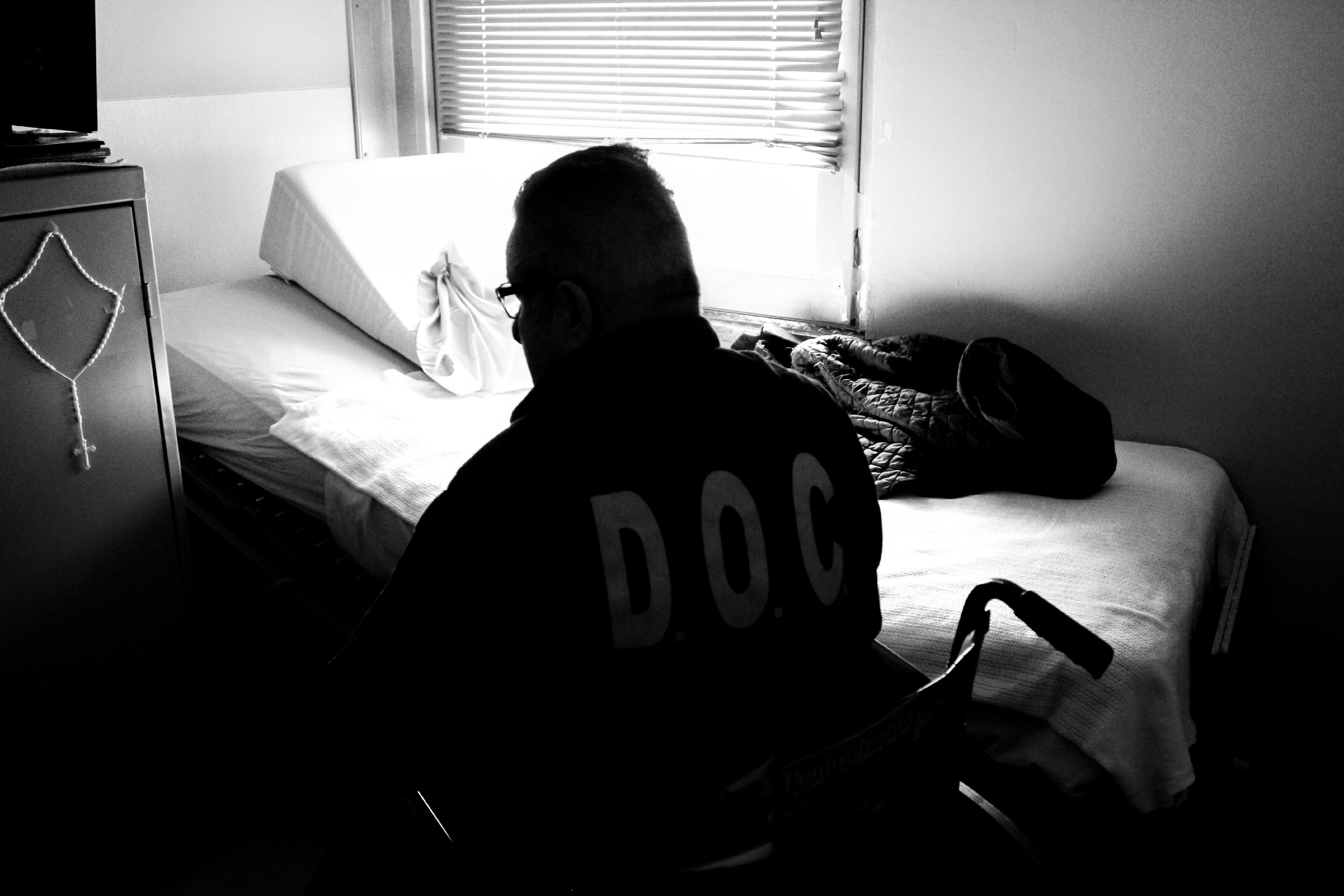
One in 10 people serving life without the possibility of parole in the U.S. is incarcerated in Pennsylvania. The state is second only to Florida in the number of people serving the sentence. These people will ultimately die while incarcerated if relief does not come in the form of a new law to provide parole eligibility or changes to the commutations process.
Other states have taken strides to reduce death by incarceration, like Massachusetts, which is currently considering a bill that would end life without parole and allow people convicted of murder to be eligible for parole after 25 years.
This month, the Pennsylvania Department of Corrections permitted The Appeal to photograph inside SCI Laurel Highlands, a prison in the southwestern part of the state that houses a large population of people who require long-term and personal care. The prison provides skilled nursing, hospice and palliative care for some of the oldest men in the Pennsylvania prison system.
In accordance with DOC rules, The Appeal agreed not to photograph any of the men’s faces or publish their names.
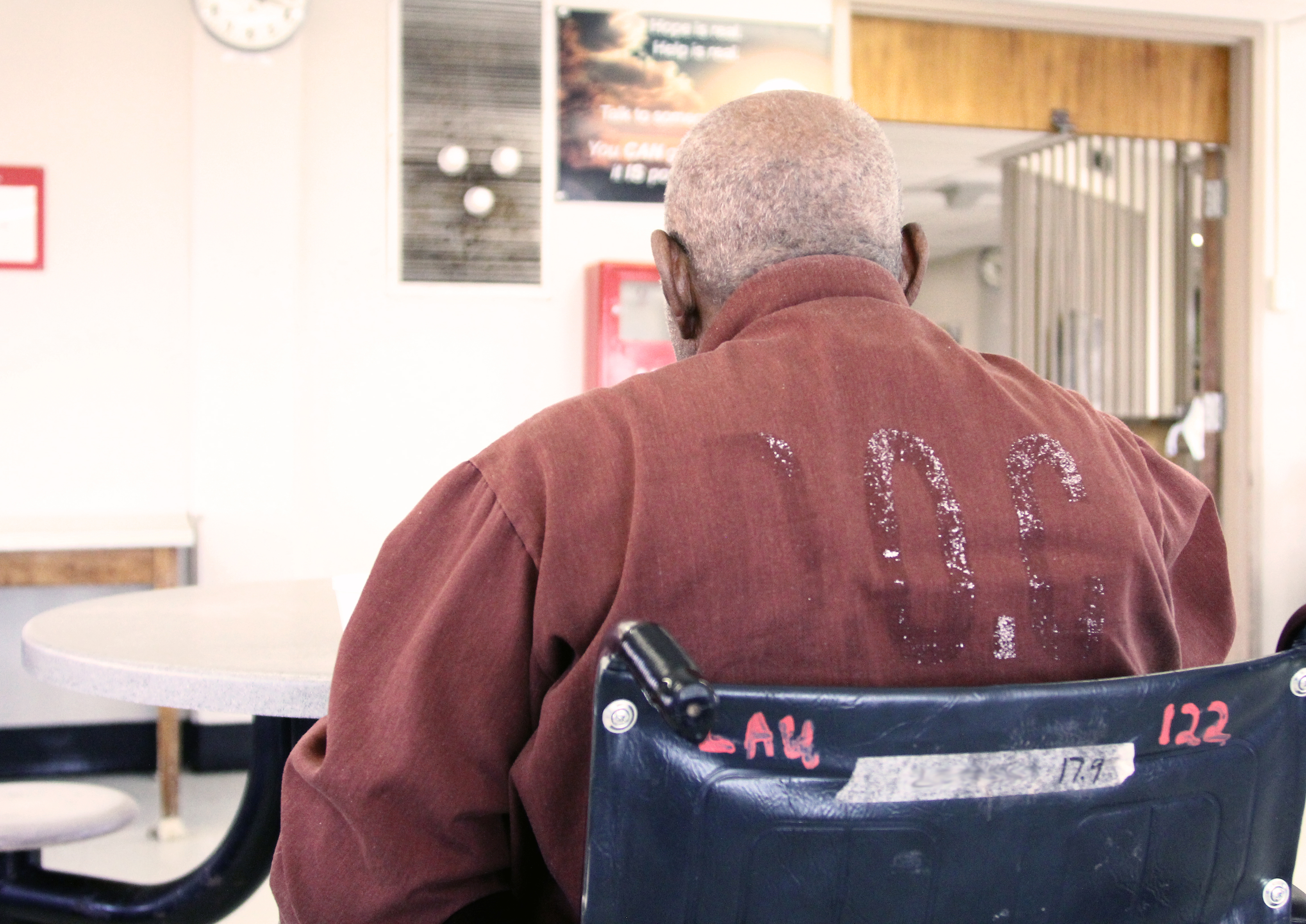
In 1976, less than 700 people in the Pennsylvania prison system were sentenced to life without parole. At the end of 2018, more than 5,400 people in prison were sentenced to life in Pennsylvania, a number nearly equal to the total population incarcerated in its entire prison system during the 1960s and 1970s.
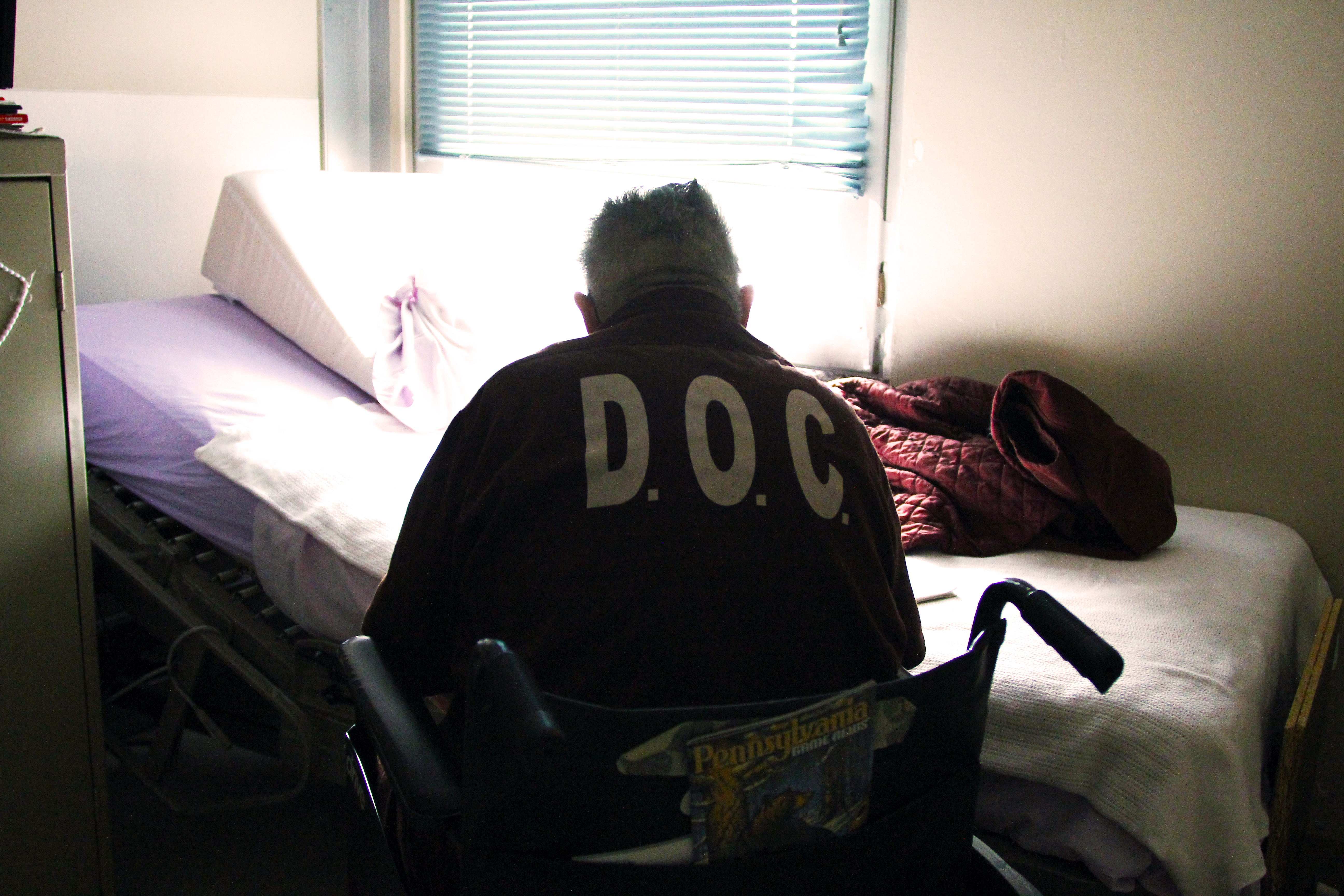
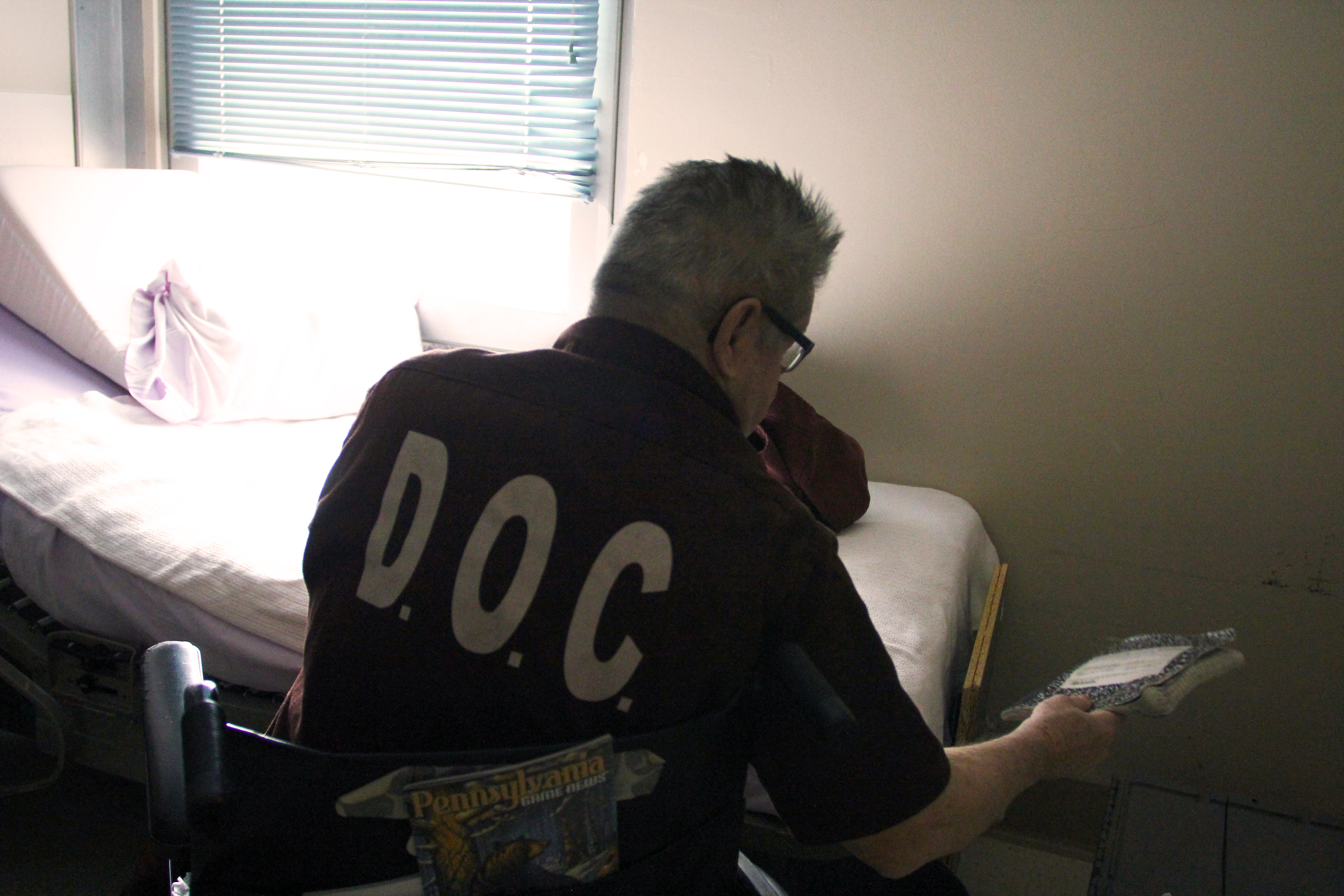
Although there has been a renewed effort under the leadership of Lt. Gov. John Fetterman, the chairperson of the Board of Pardons, to provide more commutations from life sentences, the process stagnated for several decades.
During Governor Milton Shapp’s administration from 1971 to 1978, 251 people received commutations of their life sentences. Only 51 people have had their sentences commuted since Shapp left office.
In September, the Board of Pardons recommended commutations for nine people, the most recommended at once in decades. But thousands remain in prison with little chance at freedom.
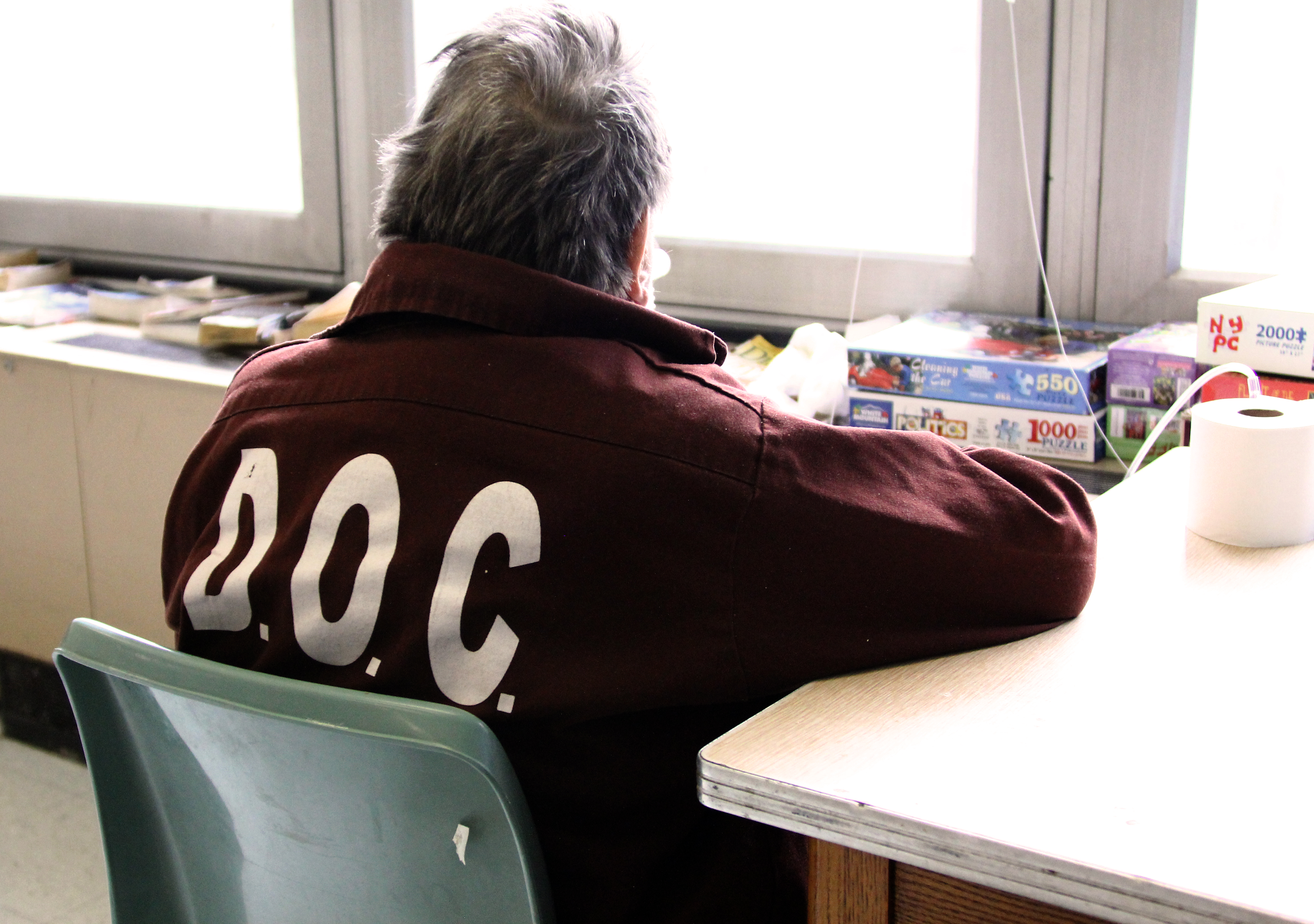
One man, who has been incarcerated for more than 40 years, told The Appeal about his days as a bodybuilder in his early 20s. Photos of the man striking Adonis-like poses hung on the walls in his room.
“I was 22 and dumb and had a gun,” he said.
Now 65, the man’s body was frail and broken. He relied on a wheelchair for mobility and his right hand curled in because of degenerative arthritis. He said he broke his neck twice while he was incarcerated, once during a fight when he was a young man and more recently during a fall.
He said he hoped to one day get out of prison so he could mentor young men to keep them from “throwing their lives away.”
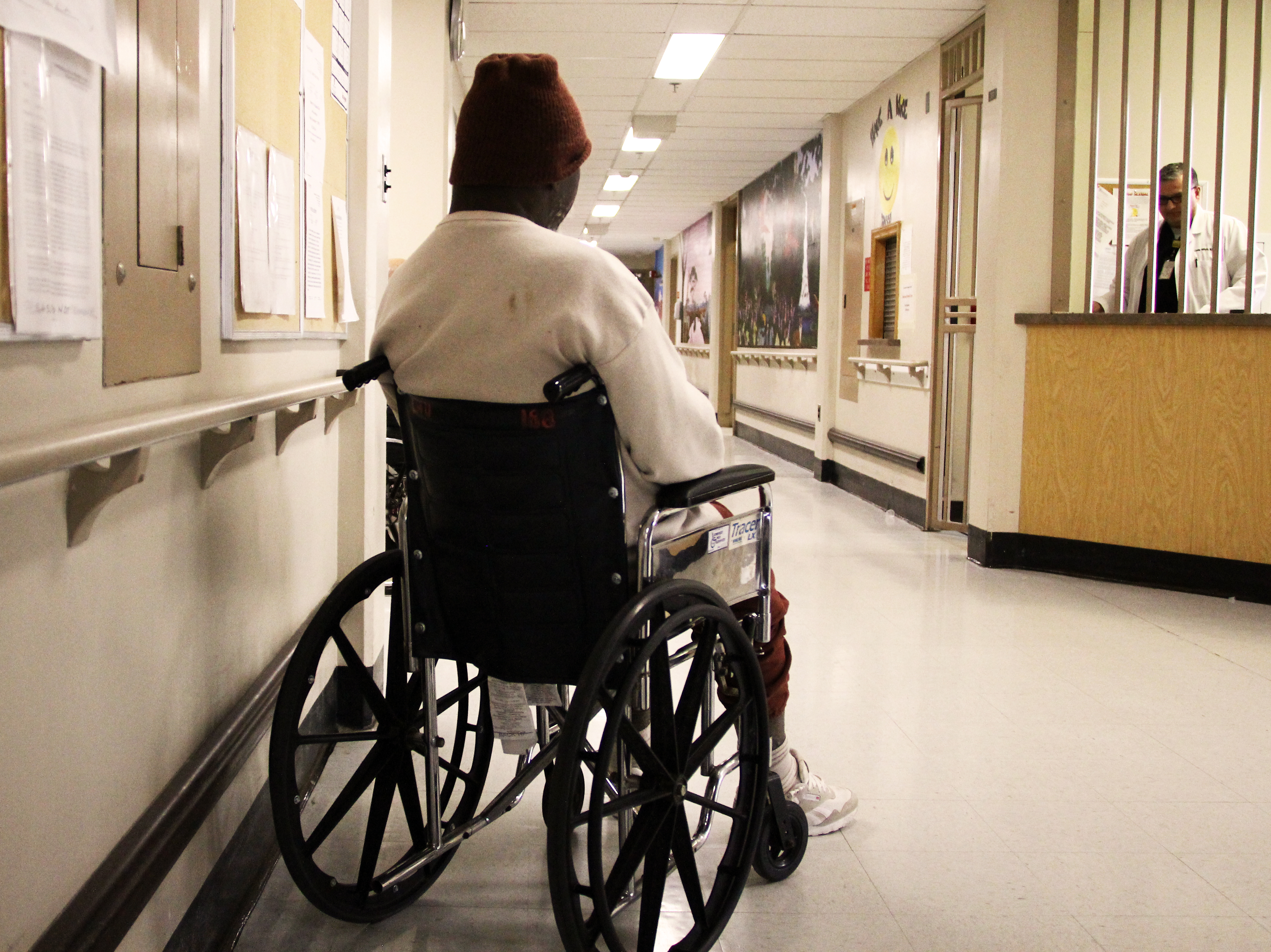
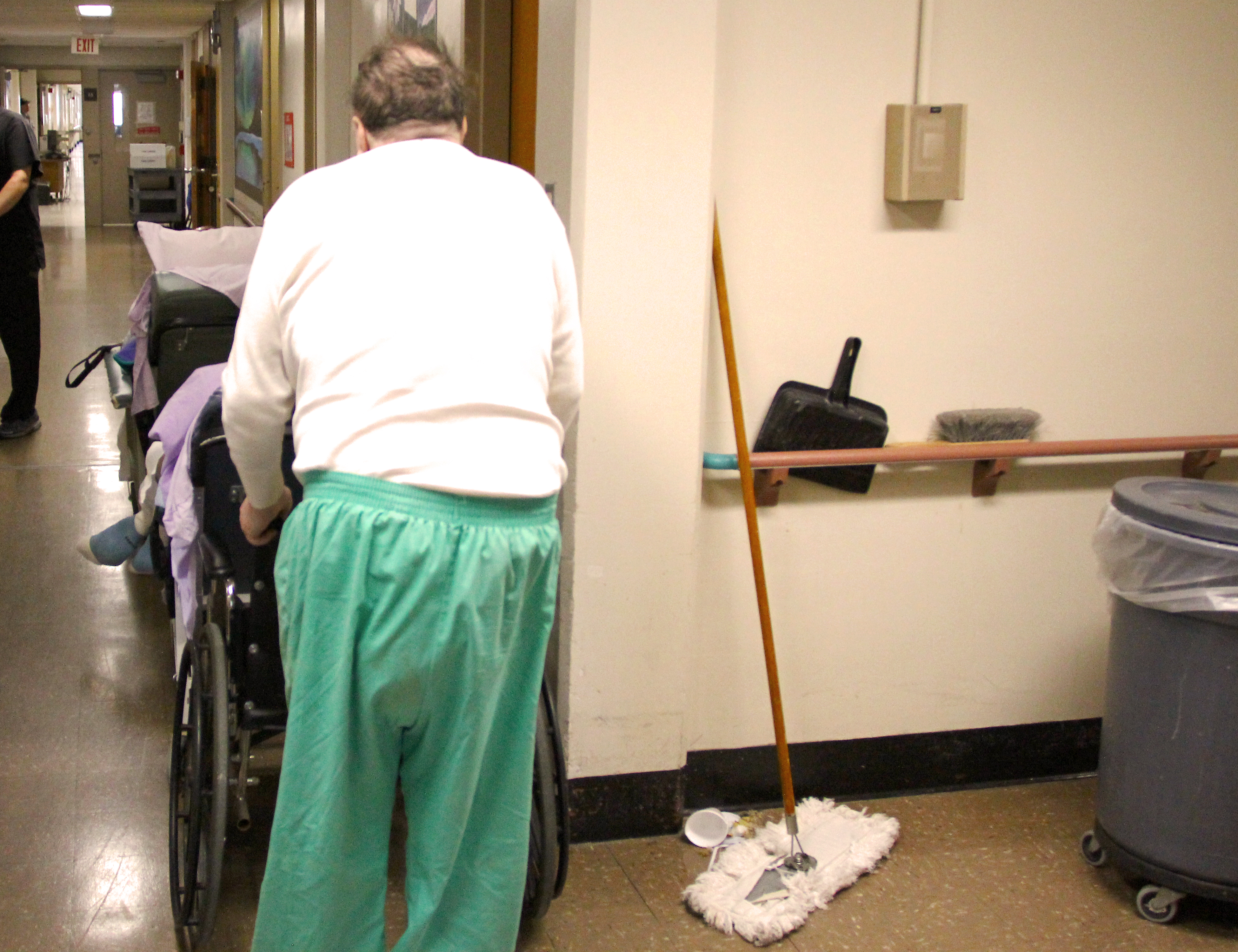
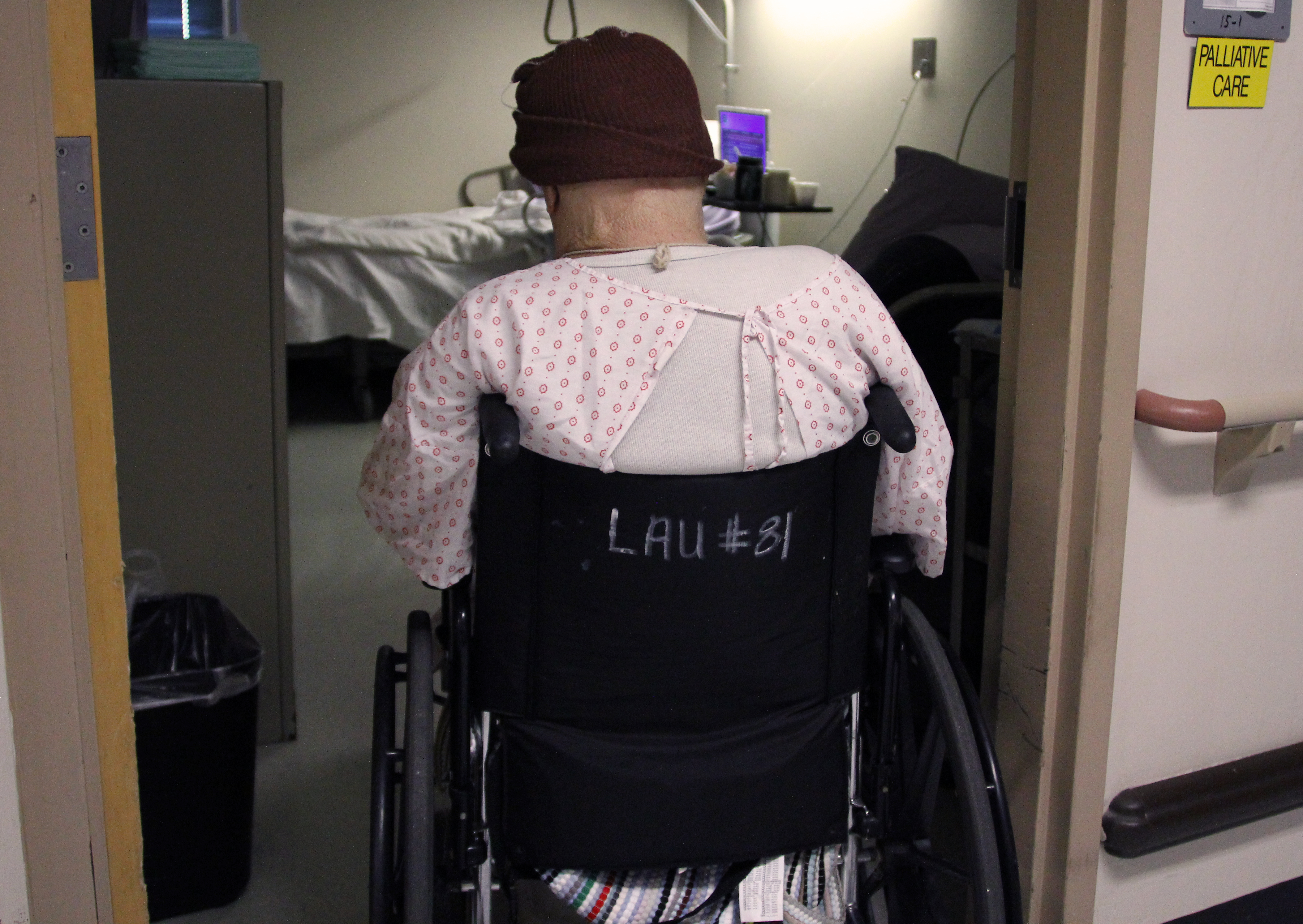
In 1980, fewer than 10 people serving life without parole in Pennsylvania were over the age of 65. At the end of 2018, there were more than 700.
More than half of all people in prison in Pennsylvania who were sentenced to death by incarceration have served more than 20 years; nearly 400 have been in prison for at least 40 years. The average age of a person serving a life sentence in the state is now nearly 50 years old.

Because of the aging prison population, SCI Laurel Highlands has become a medical facility. It is common to see prisoners connected to oxygen tanks or other medical equipment make their way down the halls in wheelchairs.
The men sleep in hospital beds and receive services similar to a skilled nursing facility. Several of the men receive hospice and palliative care.
SCI Laurel Highlands even has a dialysis clinic for men in renal failure or with other kidney diseases.
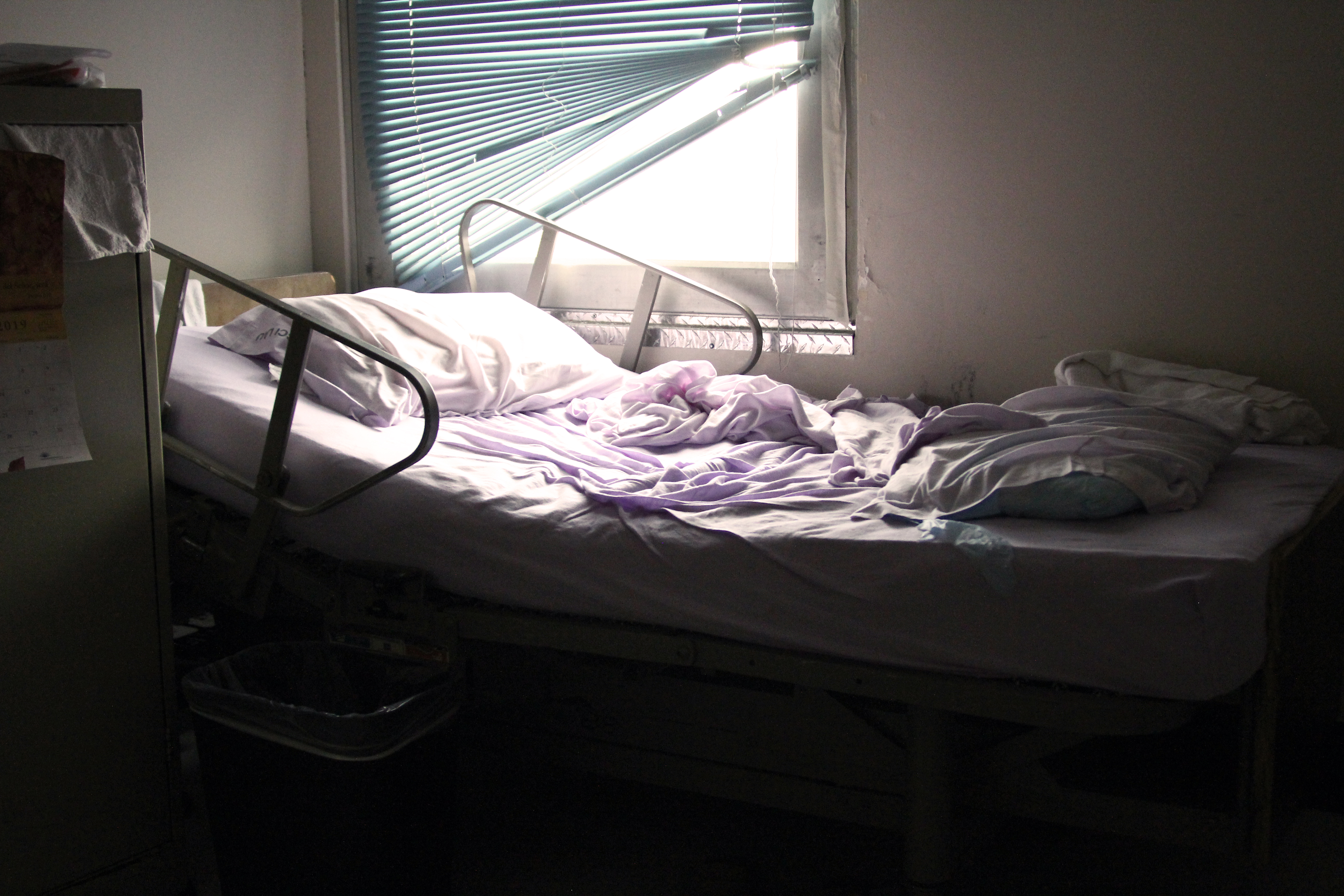
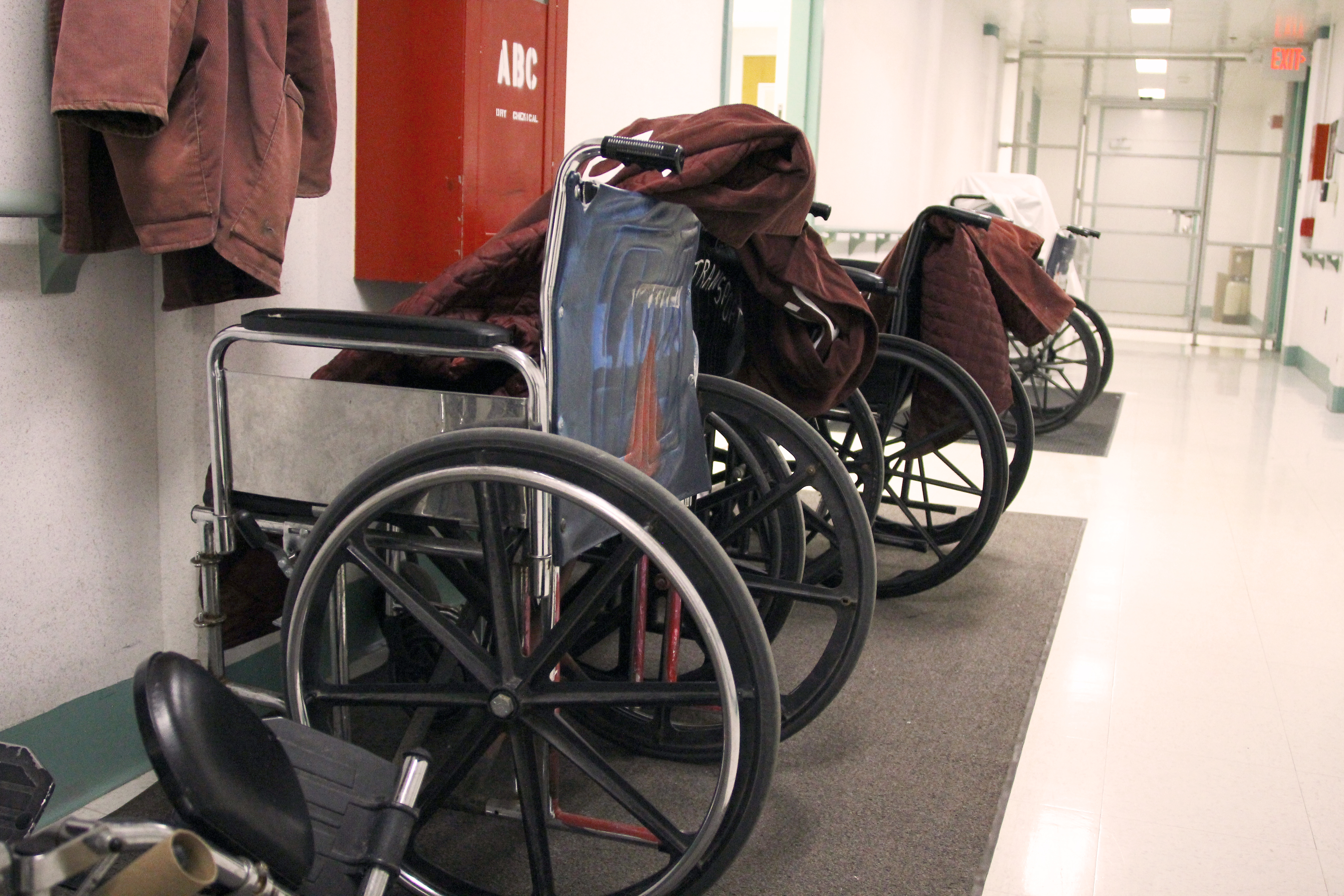
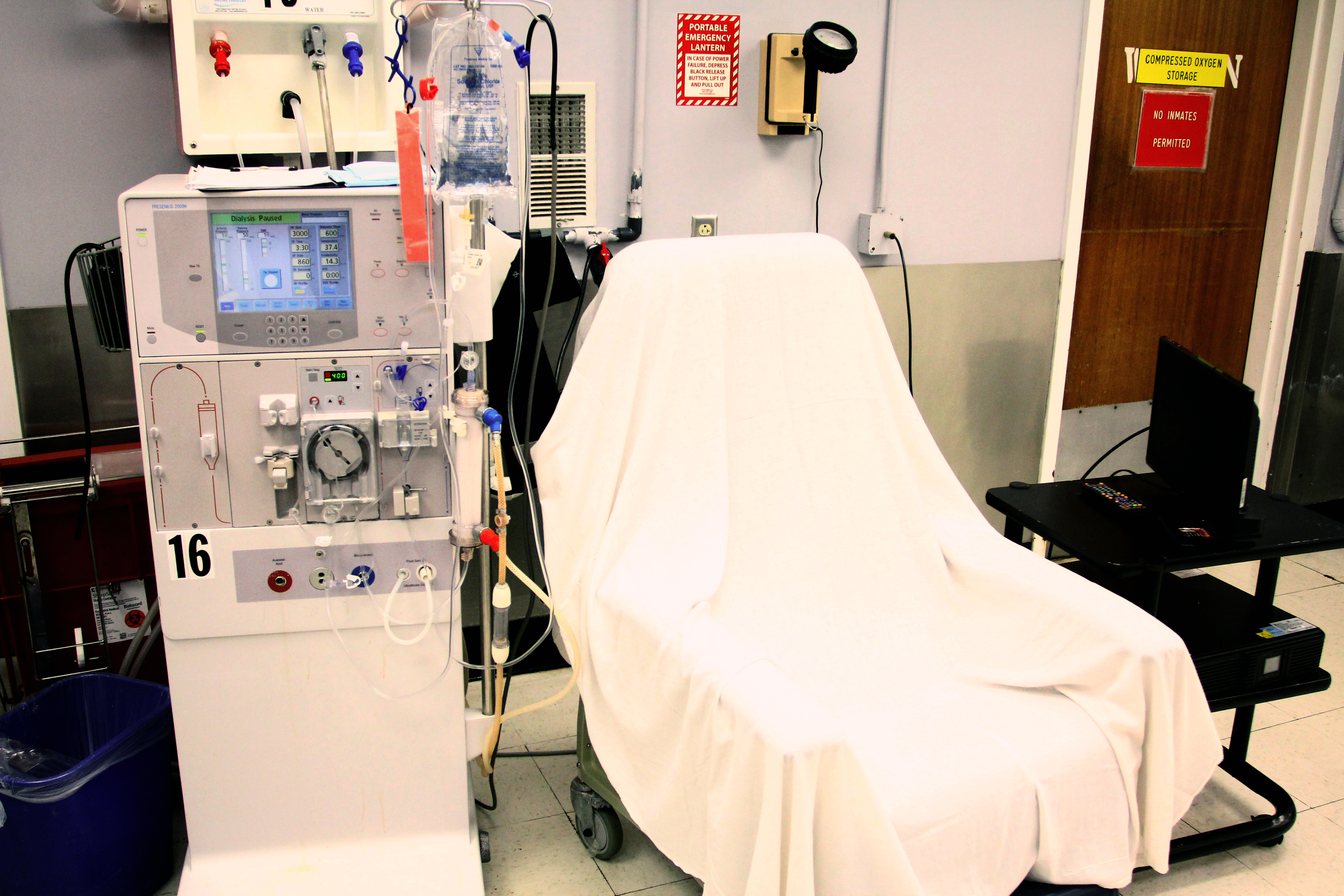
More than 350 people have died of natural causes while serving a life sentence over the last decade, according to the Pennsylvania DOC.
Earlier this year, state Senator Sharif Street, a Democrat, reintroduced a bill that would provide parole eligibility for people convicted of first- and second-degree murder. The bill would allow people convicted of second-degree murder to apply for parole after 20 years in prison and 30 years for people convicted of first-degree murder.
But the bill faces resistance in the Republican-led legislature and is opposed by several powerful organizations, including Pennsylvania’s Office of Victim Advocate.

